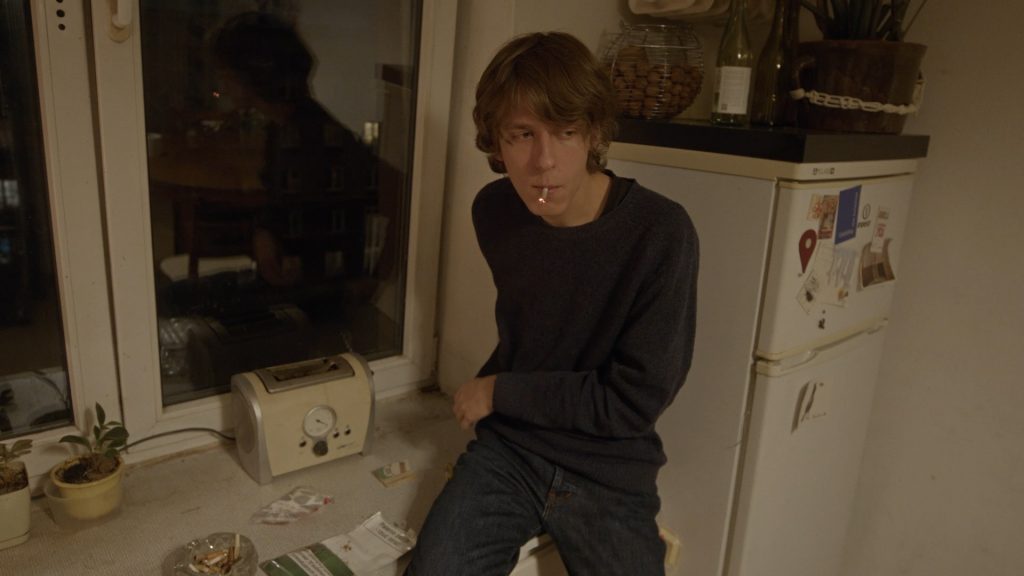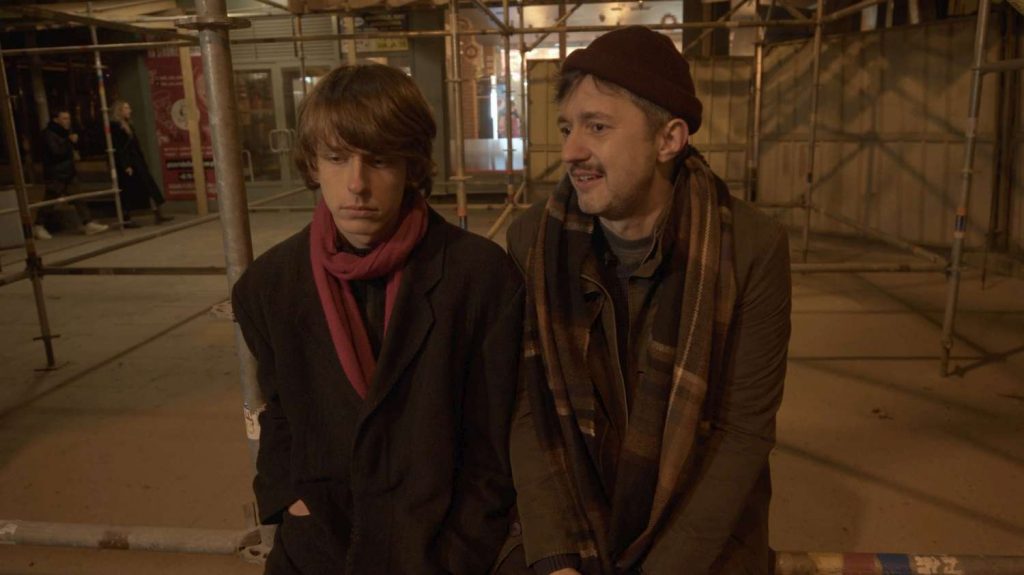BLOG · Review: “The Swan Song of Fedor Ozerov”
Words by Inna Tsvik
Imagine a world on the brink of destruction. A world of genius music and questionable quests. Or, if imagining is not your cup of tea, you can just watch Yuri Semashko’s feature debut The Swan Song of Fedor Ozerov, in which the eponymous hero dons the hat (or sweater) of Orpheus, the most musical of mythological heroes, in the name of finding his Eurydice – whoever or whatever she might turn out to be.

Fedor’s (Viachaslau Kmit) journey begins a couple of days before New Year’s Eve, when he decides to write a new song and assemble a band to perform live – something he’s never done before – after the success of his debut album ‘Minski Sindrom’ (The Minsk Syndrome). Soon he invites several musicians over to his crappy apartment to audition, one of whom turns out be a superfan (Alexey Lyubchenko), repeating “Minski Sindrom … genial’no” (Minski Sindrom is genius!) over and over again, his mantrical chant broken up only by him quoting his own poetry at Fedor and showing off his non-existent musical skills. After several tries Fedor gets him to leave, but not without being left the gift of his poetry collection titled Orfei i Evribadi (Orpheus and Eurybody), which Fedor promptly throws in the trash.
Disappointed by the candidates but still determined to write a new song, Fedor hits a new snag in his artistic endeavour, as he seems to have lost his lucky sweater with daisies. See, Fedor wrote the entirety of his album in this magical piece of clothing, which his mentor Mitrofan (Pavel Haradnitski) prophesied to have creativity boosting abilities. As any older sibling would, Fedor calls his younger sister Nina (Violetta Rahachova) and accuses her of stealing his beloved sweater, to which she lovingly tells him to go fuck himself and read the news for once. However, after following her advice, Fedor is unperturbed by the threat of a looming nuclear apocalypse, which is about to begin on January 1 and goes about finding his lucky sweater in a plot that will send him through several circles of hell (including Tinder).

The Swan Song of Fedor Ozerov is most and foremost a critique of any underground music or art scene, depicting it as a cosy, but ultimately self-indulgent endeavour. A space in which self-proclaimed intellectuals talk about art and politics, culture and self-expression, but never really do anything, their words ringing hollow in the smoke-filled apartments, they gather in to play guitar, imbibe a variety of drugs and while away their smug lives. Fedor first emerges as an avatar of this scene, a self-obsessed young artist, who is so focused on making his music that not even the impending apocalypse nor Nina’s fervent political activism, can deter him from his goal – or even interest him enough to check the news once in a while. His quest to find the sweater is portrayed as comically immoral and self-absorbed, as he does some questionable things to find it; his obsession even endangering his own life.
As with Orpheus, it is only when tragedy strikes, that Fedor is shocked out of his apolitical stupor, finally understanding that good music (as any art) cannot thrive in a vacuum; that, regardless of what 19th century artists believed, art does not exist just for its own sake and for the sake of its creator. It is here that we get to the heart of the film – overcoming the fear, the helplessness, of making art in a burning world. Through his protagonist, Semashko questions the constant feeling of uselessness many artists experience in the face of political and social upheaval and his answer is deceptively simple: love. Just like Orpheus, Fedor, too, has to compose and perform a song to make the furies cry, a song to free his Eurydice and to eventually pay the price for daring to believe that a song can change the world.
Catch The Swan Song of Fedor Ozerov at our screening on Saturday, 8 November at 21:30h.





